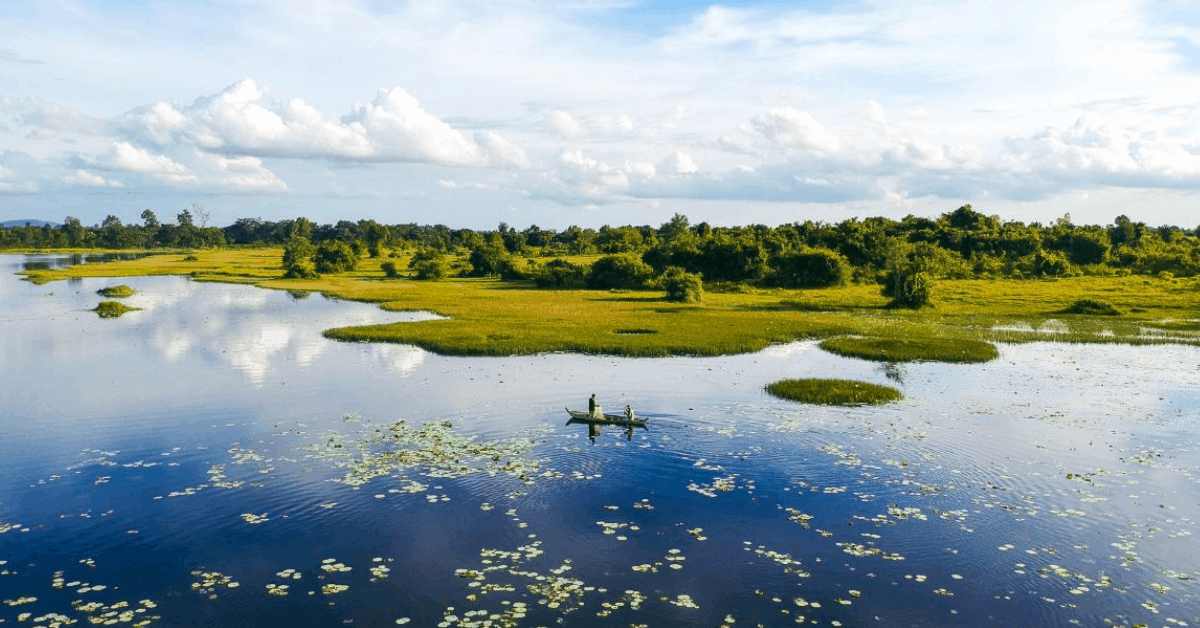How to make sure you choose eco-friendly sustainable hotels for your next trip and help cultivate a sustainable living.

Green is the new black when it comes to travel. According to Booking.com’s 2018 Sustainable Travel Report, 78 percent of U.S. travelers say they want to travel more sustainably, with more and more sustainable hotels coming onto the market.
But what is sustainable travel? The United Nations World Tourism Organization (UNWTO) describes sustainable tourism as “development [that] meets the needs of present tourists and host regions while protecting and enhancing the opportunity for the future”.
What the term sustainable hotels means
In order to be a sustainable hotel, the hotel company needs to reduce its impact on the environment by using products that are completely renewable or sustainably harvested so as not to add to pollution. This is opposed to a green hotel, which would use wind or solar power to take itself off the grid.
One hotel that is a green pioneer is Stanglwirt in Kitzbuhel, Austria. The dairy farm, which has been in Austrian entrepreneur Balthasar Hauser’s family for 12 generations, is now also a five-star hotel. When Hauser took over the land in 1966, he created a restaurant and then many years later in 2009, he opened the green-hotel. The hillside lodge could have rested on its farm-to-fork eco-credentials, but it went even further, launching its own biomass heating plant that uses bark from sawmills to create energy for the entire property. The hotel also installed sheep’s wool mattresses, straw-based loungers, and takes its electricity from a CO2-free hydro plant.
The Song Saa Collective in Cambodia is another hotel group showing what green travel can look like. With the launch of its first resort Song Saa Private Island, off Koh Rong Island in 2012, the company created the first private marine reserve in the country as well as the Boat of Hope, which provides healthcare for people in the archipelago. At the end of 2018, the Song Saa Collective revealed plans for an eco-town near Siem Reap. The 400 hectare Song Saa Reserve will host seven eco-friendly hotel groups at the lakeside site, as well as a hotel hospitality school to help train members of the local community.

Sustainable hotels don’t need to be based within a forest to have a chance at being green. New York’s 1 Hotel Brooklyn Bridge has shown how city hotels can be environmentally friendly. The innovative designers created a hotel that uses wind power for energy and collects rainwater to help irrigate neighboring Brooklyn Park.
While this initial financial outlay is good for the planet, it can also be more financially viable in the long run for the hotel. According to Mandala Research’s 2016 Role of Sustainability in Travel & Tourism report, 60 percent of green travelers spend 600 USD per trip and stay three days longer than the average holidaymaker.
How you can choose from a range of sustainable hotels
If you want to stay somewhere other than an eco-town or sustainable farm, you might have difficulty working out how green accommodation really is. There are a number of apps and websites out there that highlight green hotels and can do the work for you.
Another way to separate the proverbial wheat from the chaff is to look at the hotel’s certifications. Numerous bodies such as EarthCheck in Australia, and LEED and Green Globe in the U.S. have come to the rescue by creating programs that create strict environmental guidelines for sustainable hotels. EarthCheck has been a guide for the Alila group, which was so keen to minimize its environmental footprint it launched the Zero Waste Initiative program in Bali. The team made sure all their waste could be recycled – from bedroom slippers to water bottles. Marco Groten, Head of Operations for Alila Hotels, said their Bali resorts had achieved their goal of no longer contributing waste to landfill.
“Alila is now working towards implementing this program across all properties under their portfolio,” he said.

Some hotel groups have held themselves to account by placing environmental experts on staff, which is why environmentalist John Roberts was made Minor Hotel Group’s new Group Director of Sustainability in 2018. The hotel has properties in Africa, the Middle East, Europe, Asia, and South America. His remit is to make sure that 90 percent of all applicable hotels are certified Gold by the Green Growth 2050 Global Standard. Roberts has helped drive eco-friendly initiatives across the hotel group, such as switching plastic for bamboo straws, promoted the recycling of cooking oil in the hotel kitchens, and is now working on a project to offset the carbon footprint of the entire group.
If you are staying at a boutique property, which might not have a world-renown certification, Roberts suggested “looking at what their promises are and ask about those that seem unfeasible”. To find out how green your hotel is, you could ask if the hotel has a recycling plan, you could find out if its food is grown locally, or if the hotel helps the surrounding community.
While you are traveling, you can also take steps to be a little greener yourself, Roberts said.
“As a family, we always travel with refillable bottles, reusable bags and reef friendly sunscreen,” he said.
“It can feel a little geeky, but that way we know we can reduce impact. Sometimes that’s the better option than interrogating [the hotelier], it is supposed to be a holiday after all!”
Websites and apps to help you book sustainable hotels
bookdifferent
With the bookdifferent website, you have 1.1 million green hotels at your fingertips. Whether you’re looking for hotels for business trips or beach escapes with the family, you will be able to find the greenest choice for your trip at this site. When you choose your desired hotel, the site highlights how big your carbon footprint will be if you stay there should you wish to offset it later. Other sites such as Carbon Footprint can help you turn this calculation into a donation to eco-friendly charities.
Environmentally Friendly Hotels
Not only does Environmentally Friendly Hotels give you the chance to choose from thousands of sustainable hotels, it also lists each hotel’s green attributes before you book. From gray water recycling to whether the source of food served in its restaurants.
Green Globe
Whether you’re traveling for work or for pleasure, the Green Globe app will help you create an eco-friendly trip. Log-on to spy sustainable hotels, conference rooms, or attractions for each destination, then click onto your chosen hotel, knowing that it has had to hit more than 40 different criteria to prove how green it really is. The criteria each hotel is measured against includes low energy and water consumption and a strong waste management plan. You can also share your itinerary with your family or colleagues through the app should they fancy a greener option.
Trip Advisor
If you’re searching for sustainable hotels on the site, type in Green Leaders on Trip Advisor. This will immediately take you to all the eco-chic retreats at your planned destination. Offered in partnership with Energy Star, a program run by the U.S. Environmental Protection Agency, it rates hotels according to how much they recycle, whether they have solar panels, and even electric car charging stations.
TripZero
Feeling guilty about your carbon footprint? Then book your trip through TripZero. The commission they charge hotels for appearing on their site goes towards helping green schemes in developing countries – from reforestation projects to renewable energy projects.




